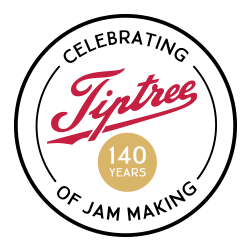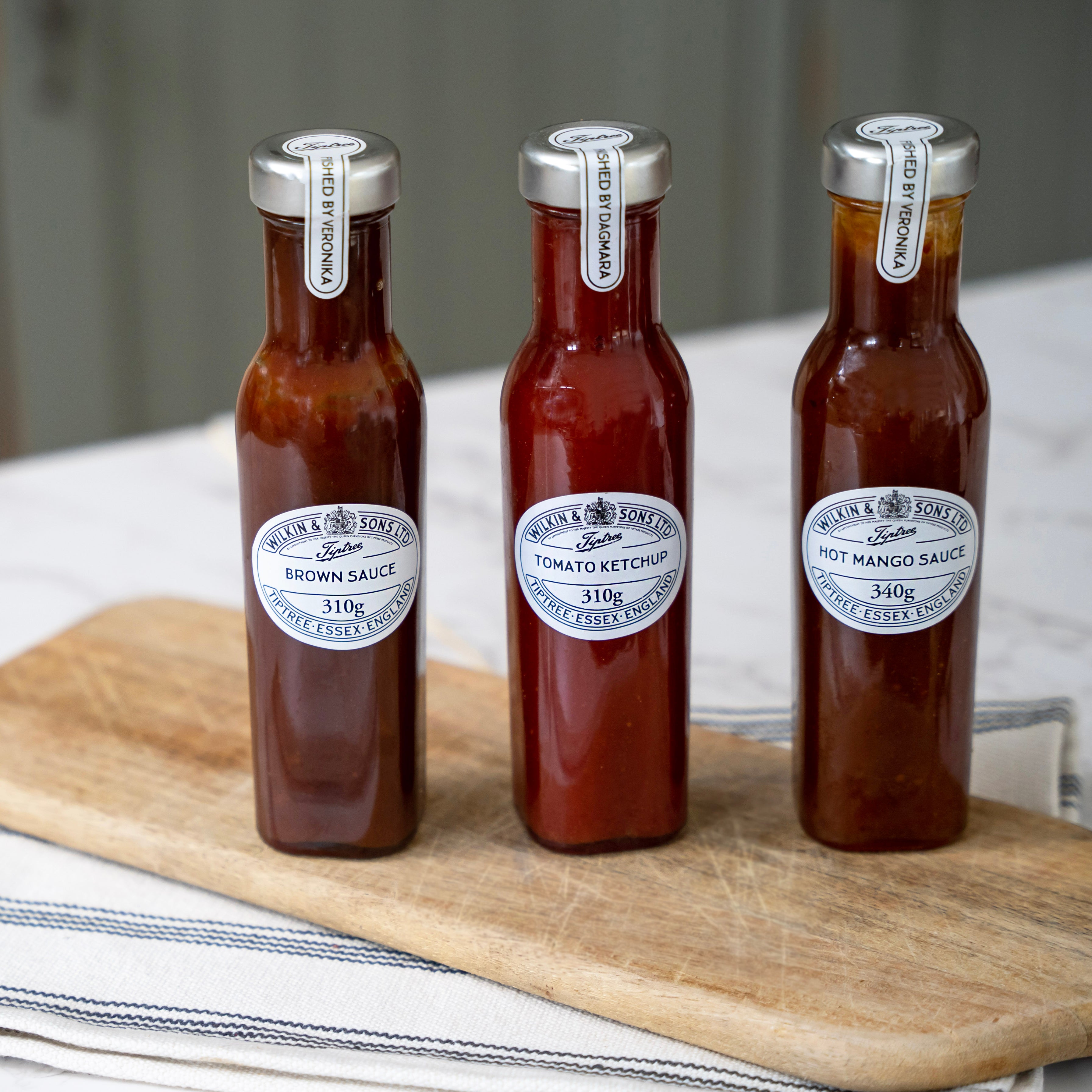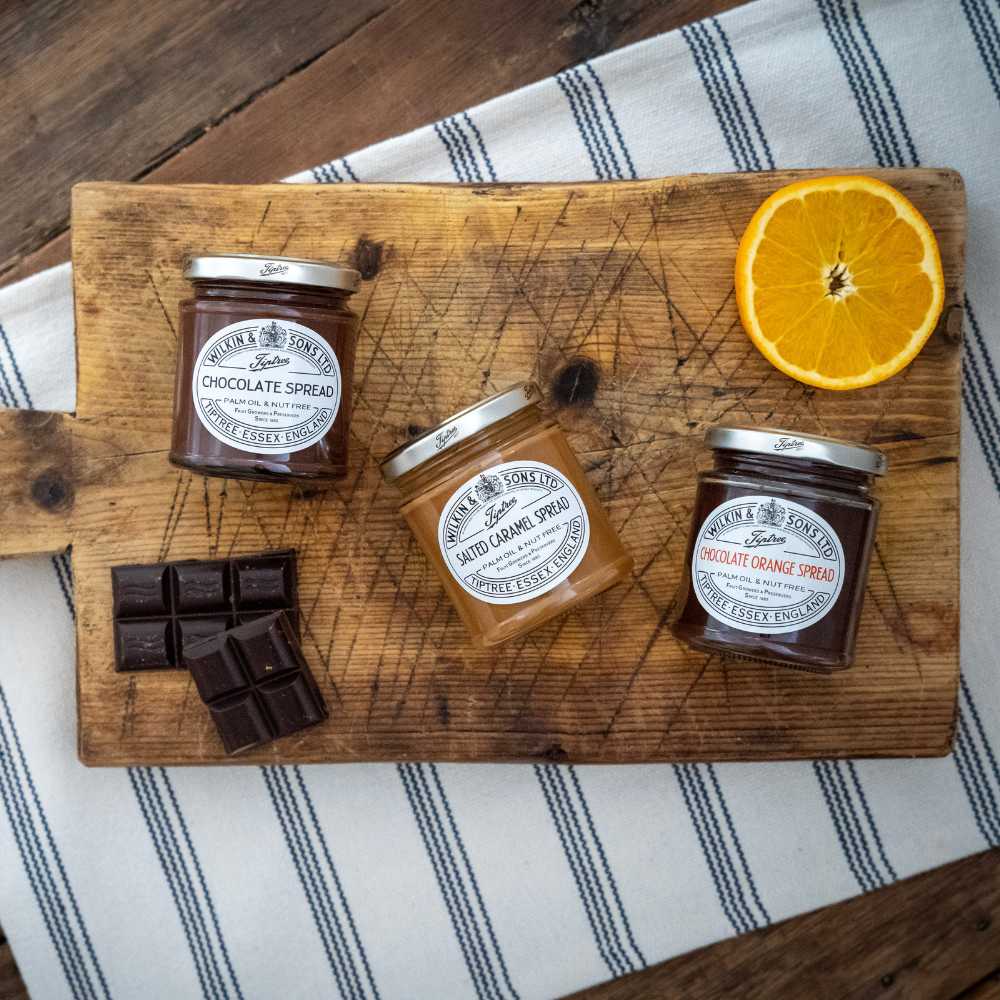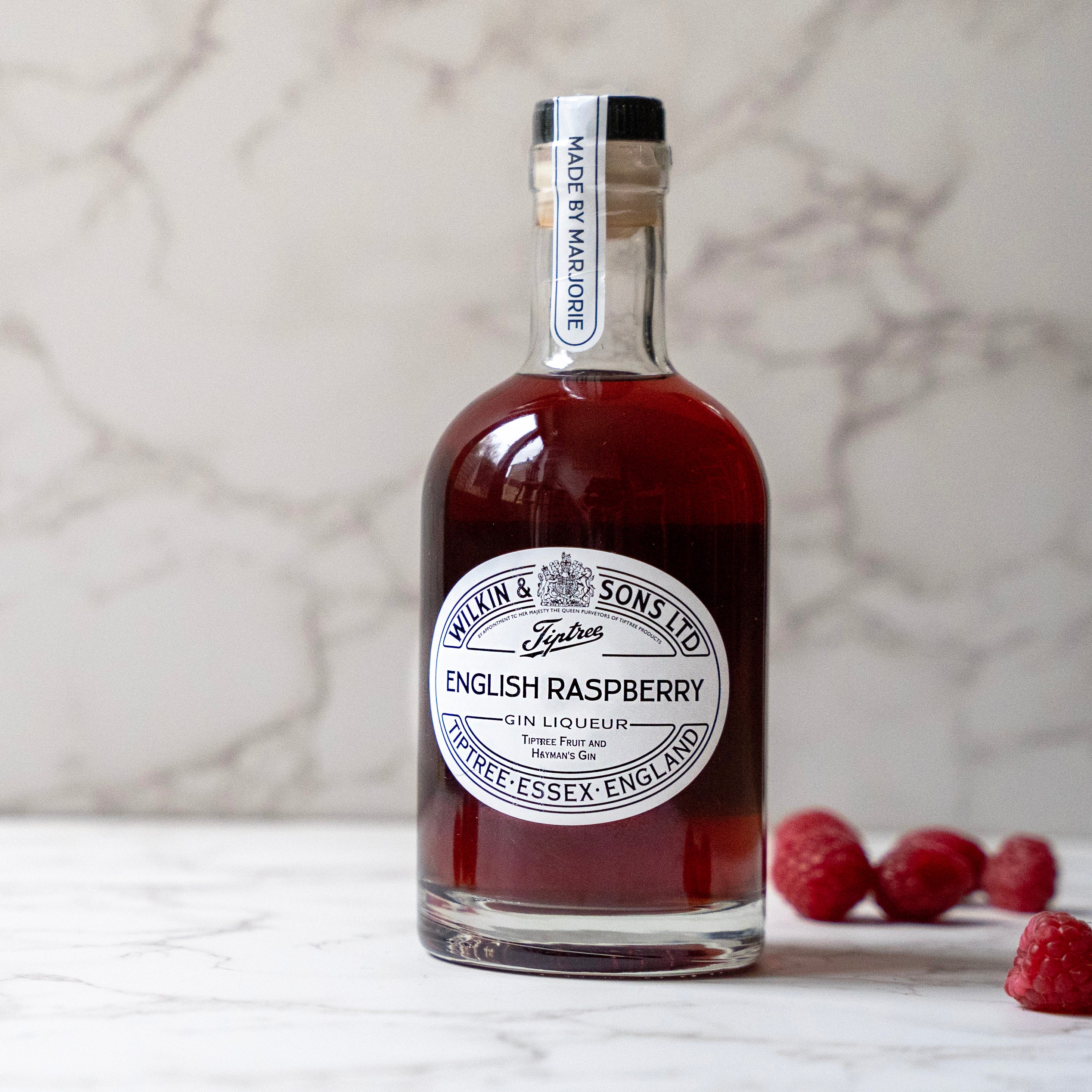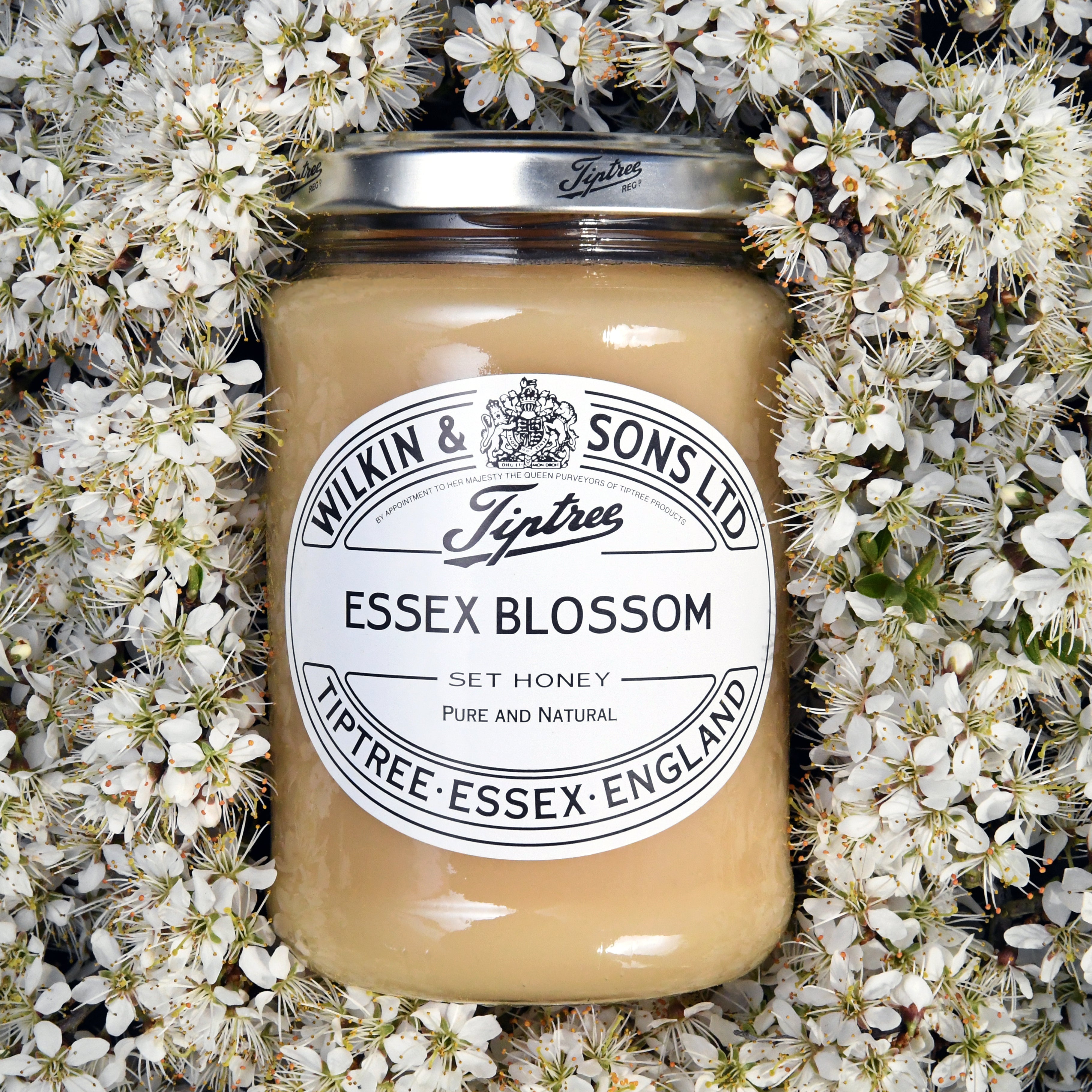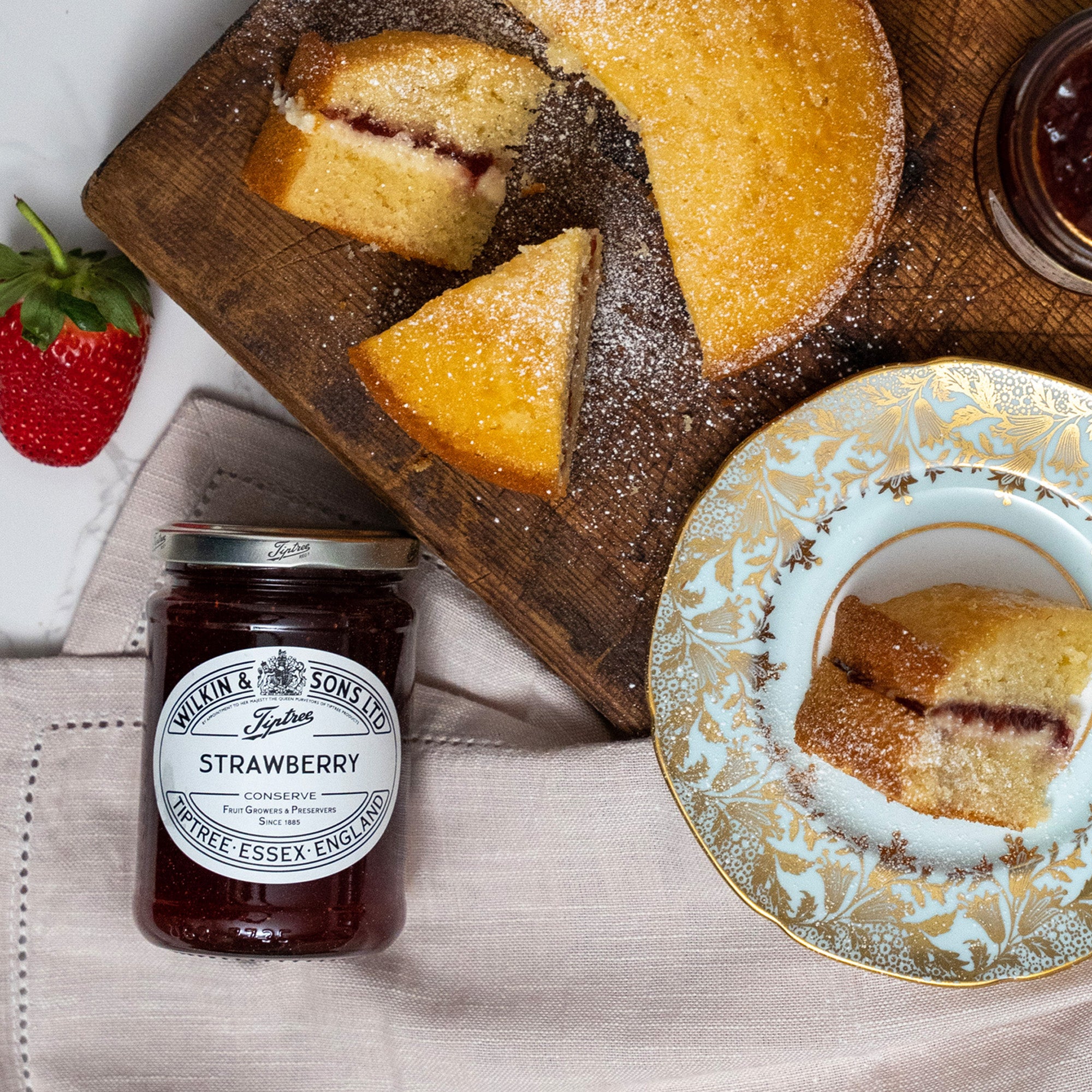A POTTED HISTORY
The ‘Tiptree’ story begins around the early 1700s with Trewlands, the farm that was later to become the main site for jam-making in the Essex village of Tiptree. Today, there are some 11,000 inhabitants in what may well be the largest village in the country. To save you valuable time online, the definition of a village is generally accepted as “a group of houses and associated buildings, larger than a hamlet and smaller than a town, situated in a rural area.”
By the time the Wilkin family had begun to move from arable to fruit farming in 1865, the village’s population was 850. People continued to choose Tiptree as a place to live and the 1961 Census recorded 3,018 inhabitants.
THE BRITANNIA FRUIT PRESERVING COMPANY
Fruit farming in Tiptree involved growing the fruit, then taking it by horse and cart to Kelvedon railway station and from there on to London for sale at the markets. When Gladstone, Prime Minister of the day commended fruit preserving to the population at large, Arthur Charles Wilkin leapt on this idea as a way to finally make a success of farming in Tiptree. In 1885, The Britannia Fruit Preserving Company was formed and the very first ‘Tiptree’ preserves were made, all to be sold to a merchant who would ship them to Australia. Within ten years, more than 200 tons of fruit was being produced, half of that used for making jam. The success of Tiptree’s jam-making project was good news for the village and records show that in 1891, four hundred pickers were employed, earning between 12p and 40p per day. Factory workers in the meantime were busy making the jam and earned up to £1 per week.

THINGS WEREN’T ALWAYS EASY
The opening of a rail link between Kelvedon and Tollesbury via Tiptree did much to help the business and also encouraged population growth as travel became accessible to more and more people. Over the years, Wilkin and Sons (as the Company had by now become known) bought and farmed much of the land surrounding the village and even strayed as far as Dagenham and Suffolk. Today, the ‘Tiptree’ estate includes farms in Tiptree, Tollesbury and Goldhanger. Things weren’t always easy and in one memorable note, Mr. Wilkin records having to sell a horse to pay the men’s wages. Despite that, village records also show that by 1900 an Old Age Relief Fund was helping the poorer people of the district and Arthur Charles Wilkin was active in setting up and helping to run that Fund. About that time he gave the Congregational Church one acre of land, helped fund the building of the Salvation Army Hall and gave employment to the Salvation Army Cadets.

THE WAR
By 1906, the Company owned 800 acres of land yielding some 300 tons of fruit each season. In 1914 The Essex Telegraph reported: “During Monday, over ten tons of strawberries including a large proportion of the famous ‘Little Scarlet’ were made into jam.” 1914 brought the First World War and Wilkin records from November 1914 state “Business at a standstill. Large works closed. Much unemployment.” Again in 1918: “Acute shortage of wheat, sugar and other important foods. Went to see Government Jam Controller in London. Turned out to be a barrister. Very difficult to convince that 1lb of sugar and 1lb of fruit would not make 2lb of jam.”
The war over, things improved once more and by 1922, the Company owned over 100 houses, eight farms, the windmill, the blacksmith’s forge, the Factory Club, The Salvation Army Hall, the factory and 1,000 acres of land. The village had grown to over 1,400 inhabitants, encouraged by the growth of jam-making and the Anchor Press which had become a major employer in the area. During World War Two, Wilkin and Sons came under the control of the Ministry of Food but somehow Mr. Wilkin managed to get special dispensation to keep to the original recipes with their high fruit content.

STEADY GROWTH FROM THE 1950’S
During the 1950s, the village changed significantly as the population continued to grow and other businesses moved to Tiptree. An official guide to Tiptree from 1957 lists a shopping centre, two banks, two churches, a wide variety of sports and social clubs, six public houses, a playing field (Windmill Green had been a disused gravel pit) and two primary schools. The Tiptree preserves business has seen good times and difficult times throughout its history but from the 1950s, there was a long period of steady growth. More recently, as the traditional market has declined and British manufacturing has become almost a thing of the past, the Tiptree business has gone from strength to strength. A renewed focus on home-grown fruits has helped the farm to flourish and today, it grows more fruit than ever, in stark contrast to much of the country’s fruit farming enterprises.

125 YEARS OF MANUFACTURING
2010, the 125th year of jam making at Tiptree, signalled all-time record sales, despite global recession. A year of celebration, 2010 was marked by a visit from Her Majesty The Queen. The Company staged a play in the mulberry orchard, specially commissioned to relate the life of John Joseph Mechi, silversmith, inventor and experimental farmer at Tiptree Hall, now part of the ‘Tiptree’ estate. A Tiptree garden was created by Writtle College for the Chelsea flower show, it too reflected on the life of Mechi. The business recorded its best ever sales.
LOOKING FORWARD
Today, Wilkin and Sons not only makes ‘Tiptree’ preserves, it has a flourishing fresh fruit business and multiple tea rooms in Essex. Thursday Cottage, a hand-filled preserves maker is now owned by Wilkin and Sons and based at Tiptree; Passionately Cakes was bought and later merged with Raven Catering to form Tiptree Patisserie, a successful high quality food producer based nearby in Witham. Tiptree Patisserie bought Daizylake cakes and moved that business to Witham. Cole’s Puddings (premium Christmas pudding producers) have also become part of the Wilkin & Sons food family.
Many of the staff live in Company-owned accommodation on the estate surrounding the factory. Around 650 acres of Essex farmland produce Grade I fruits, including medlars, mulberries and quinces. Wilkin and Sons is best known for its Little Scarlet strawberries, grown only on the ‘Tiptree’ estate. Adoption of the most up-to-date farming techniques ensure the farm is more successful than ever at growing exactly the right varieties of high quality fruit for ‘the jam factory’. The aim is to retain the flavour of the fresh fruit in the finished product.
ROYAL WARRANT
Through a trust, the employees control almost half the company’s shares. Trading profits are used to buy back shares for the employee trust so that everyone involved can truly claim to be a stakeholder. This also offers some protection for the independence of the business.

COMMUNITY
The company has always been an integral part of the local community - it is the largest employer in Tiptree and takes its social responsibilities seriously. Profits are used to support local sports and arts organisations and to improve the environment. Each year the Tiptree Strawberry Race takes place in June and all funds raised are donated to a charity, usually one with local roots.
Local sponsorship helps the business in a commercial sense too: there’s a ‘Tiptree’ stand at the Essex County Cricket Club in Chelmsford and support for annual events such as the Aldeburgh's Food & Drink Festival.
To celebrate The Queen’s Diamond Jubilee year in 2012, five years beforehand 2,012 very special over-sized jars of a unique marmalade were made and ‘laid down’ in the Tiptree warehouse. Sold during spring 2012, all proceeds were earmarked for local community projects, with around £5,000 raised.

The company has provided homes for employees for generations and in 2011 Peter Wilkin, cut the ribbon to new bungalows at Gate House Mews which now provide practical homes for retired members of staff.
Each year about 4,000 visitors are shown around the farm on Open Farm Sunday and during school visits. In 2012 the company was recognised as a Linking the Environment And Farming (LEAF) Demonstration Farm, an event marked by the planting of a mulberry tree.
OUR PRODUCTS
Many new products have been introduced over the years and the first range of Tiptree Fruit Gin Liqueurs was released in 2016, they have proved so popular that the alcohol range has been extended to vodkas and rums and special RAF Spitfire, Hurricane and Lancaster spirits.

NEW GROWING SYSTEM
Strawberries have always been the key crop on the farm and the innovations over the last twenty years have lifted the plants grown in open fields onto tabletop trays often grown under Spanish tunnels.
In 2016 this was taken a stage further with the introduction of the first New Growing System (NGS) in the UK for strawberries. The NGS offers a sustainable controlled environment for the fruit, the system doubles the amount of plants that can be grown per hectare and it is much easier for the pickers. Farming in the driest part of the driest county in the country is a challenge so the construction of two new winter fill reservoirs was a great relief. The need for innovation and sustainability was reflected in the opening of a new Resource Centre where two efficient boilers “Arthur” and “Charles” were revealed, named after the founder.

THE QUEEN'S 90TH BIRTHDAY
HM The Queen’s 90th birthday was marked with a special lunch for local pensioners in the village hall and the cutting of a delicious cake. The highlight of 2020 was the visit from TRH The Earl and Countess of Wessex, (Edward and Sophie), who spent an afternoon meeting staff on the farm, in the factory and in the tearoom – they had a cheerful farewell from a hundred local school children.
Celebrities spotting at Tiptree during television filming has revealed welcome visits by: Stephanie Flanders, Ade Edmundson, Michael Portillo, Antonio Fuoco, Martin Newell, Gloria Hunniford, Jimmy Doherty, Babs Powell, (Rachel Hey-Hoe Flint), Hannah Waterman, Carrie Gracie, Adam Henson, Phil Vickery, Andi Peters, Cherry Healey and several new presenters.

TEAROOMS
We have a collection of idyllic Tiptree Tea Rooms, each with its own unique character. Spread throughout the region and excited to welcome you.
 The Courtyard, Saffron Walden, pictured above.
The Courtyard, Saffron Walden, pictured above.
